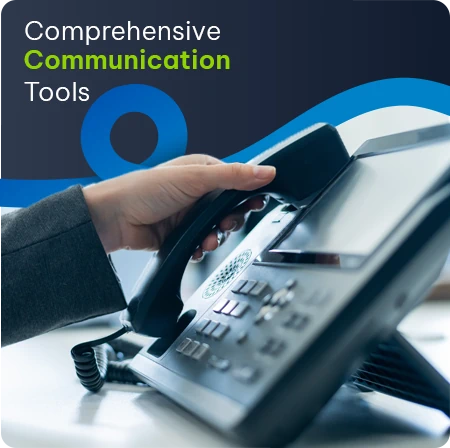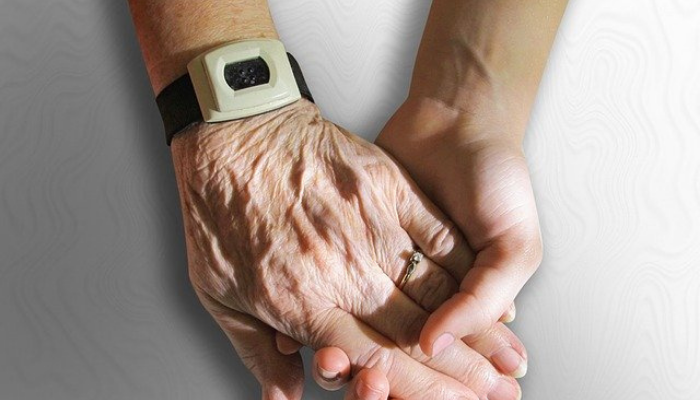Life begins at 60 – ask your parents! They need their independence, and you need peace of mind – get the best of both, with Vox ICE.
It’s estimated that 9 % (5.2 million people) of South Africa’s current population is over the age of 60. By 2050, 16 % (12 million people) of an estimated total population of 75.5 million people in South Africa will be older than 60. Globally, this phenomenon is known as the silver tsunami.
Thanks to advancements in medical care, the average life expectancy of people is increasing while their income decreases due to retirement. It’s fair to assume that a substantial number of seniors won’t consider moving to a retirement facility for a variety of reasons, including cost and loss of independence, and will choose to age at home instead.
The golden years
Relatively healthy seniors crave their independence and retirement villages aren’t a part of the lifestyle they envisioned for their golden years. People are used to certain routines and there’s also a growing trend for elderly persons to live alone amongst all population groups. A more mobile senior may choose to live in their current home without the need for live-in help or a caregiver at all.
Sadly, advanced aging will always be accompanied by changes in mobility, mental capacity and health, and with that comes a need for help.
One fall can change it all
While most seniors can be self-supportive to a large degree, certain risks include:
- Accidental fall.
- Forgetting to perform routine tasks (i.e. closing doors).
- Unexpected illness and an inability to get out of bed.
- Leaving home without any form of communication, and the caregiver is unaware of their whereabouts.
According to the World Health Organization (WHO)’s Global Report on Falls, most falls occur during the day with only 20 % of falls occurring at night. Of those at night, most occur between 9pm and 7am, perhaps during trips to the bathroom.
An accidental fall – from age-related illnesses such as Alzheimer’s, muscle weakness or visual impairment – can change the independence and the amount of care for an older person in an instant. In some cases, it may be fatal. The WHO reports adults over the age of 65 suffer the greatest number of fatal falls globally, while 20 to 30 % of seniors in the United States of America who fall typically suffer debilitating injuries such as hip fractures or head trauma.
The next generation of independent care
While technology will never replace the need for physical interaction between seniors and caregivers, it does provide an alternative solution for caregivers to monitor a senior’s behaviour and use that information proactively within the caregiving process or act immediately during emergencies.
Vox ICE home care monitoring devices are easy to install, scalable according to your needs and connect seamlessly to any network with limited human interference.
Vox ICE home care monitoring consists of:
- Motion sensors installed at strategic points in the home. These devices detect motion to create a pattern of the person’s normal day-to-day movements.
- An open/closed sensor placed at a regularly used door, like the front or back door.
- A wearable geolocation device.
“At the heart of this monitoring system is a unique algorithm that analyses a person’s normal behaviour over a certain period. This gives it the ability to detect anything unusual that may be of concern, such as a fall, an open door or too much time in bed,” explains Poena van Heerden, Senior Product Manager of IoT at Vox. “In addition, this system also offers a reporting platform for users to record or detect any changes in behaviour. This type of analysis allows caregivers to be more proactive and take action against potential underlying illnesses.”
Vox ICE to the rescue IRL:
- Beryl forgets to close her front door – an alarm is sent to her son to remind her to close it.
- If she’s not feeling well and decides to stay in bed all day, the algorithm of the Vox ICE system will detect this unusual behaviour and send an alarm to her son to check up on her.
- Beryl accidentally falls and can’t get up – the motion sensors will detect the abnormality and send an alert out for assistance.
- With the geolocation device on her keyring, she can be tracked and easily located by her caregivers if she needs any help while out shopping.
Vox ICE is an accessible, affordable care giving support system that can be easily upgraded as your care requirements change.












